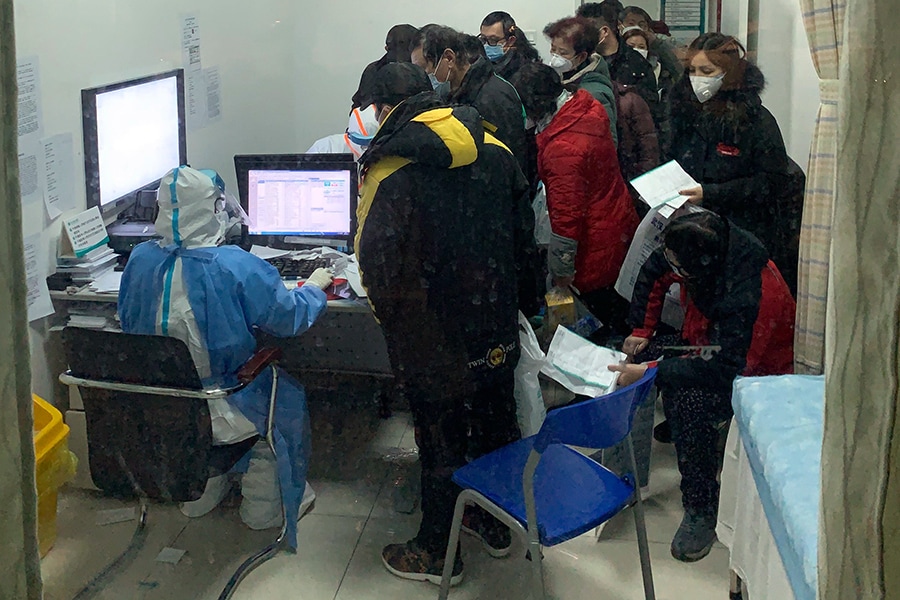
Coronavirus crisis exposes cracks in China's facade of unity
The crisis has shown that China remains riddled with vulnerabilities that no amount of censorship or strong-arming can hide
 Waiting for medical attention at the Wuhan Union Hospital, near the epicenter of the coronavirus outbreak in China on Tuesday, Jan. 28, 2020.
Waiting for medical attention at the Wuhan Union Hospital, near the epicenter of the coronavirus outbreak in China on Tuesday, Jan. 28, 2020. Image: Chris Buckley/The New York Times
From the outside, China’s Communist Party appears powerful and effective. It has tightened its control over Chinese politics and culture, the economy and everyday life, projecting the image of a gradually unifying society.
The coronavirus outbreak has blown up that facade.
Staff members at the prestigious Union Hospital in Wuhan, the city at the center of the outbreak, have joined others around China in begging online for medical supplies. Videos show patients in Wuhan beseeching medical staff for treatment. Residents of Wuhan and its province, Hubei, are being chased off planes and ousted from hotels and villages.
Online critics are comparing current leaders unfavorably with past ones, even though the older generation had its own tarnished record on responding to emergencies. Some people have urged local party officials to kill themselves.
As cracks show in China’s veneer of stability, even some with ties to the party leadership are calling for those in power to shine light on divisions rather than papering them over. The crisis has shown that China remains riddled with vulnerabilities that no amount of censorship or strong-arming can hide.
“The local government’s tolerance level of different online voices is way too low,” wrote Hu Xijin, the editor of the Global Times newspaper, a nationalist, party-controlled outlet that fiercely defends Beijing from its critics, in a social media post.
©2019 New York Times News Service




